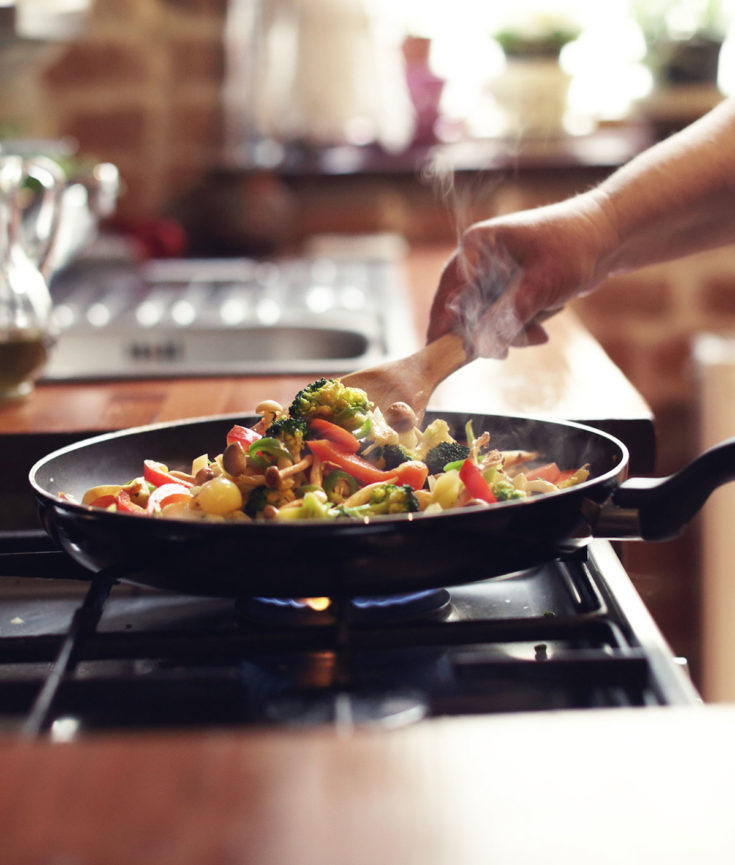Research suggests gut microbes adapt quickly to changes in diet and preparation, particularly in starchy vegetables
Originally published on on The Harvard Gazette.
How we prepare food matters to us, surprisingly deeply, it turns out.
Scientists have recently discovered that different diets — say, high-fat versus low-fat, or plant-based versus animal-based — can rapidly and reproducibly alter the composition and activity of the gut microbiome, where differences in the composition and activity can affect everything from metabolism to immunity to behavior.
“What we didn’t know was whether the form of the food also mattered,” said Rachel Carmody, assistant professor in the Department of Human Evolutionary Biology. And the answer is apparently yes.
Carmody co-led teams at Harvard and the University of California, San Francisco, in an examination of how eating cooked versus raw food affected gut microbial residents, increasing our understanding of how these microorganisms have evolved with us. The research was published Monday in Nature Microbiology.
Carmody has been intrigued by that question since grad school. “Food processing affects the way our bodies digest food,” she points out. “Physical techniques like grinding or pounding can disrupt cells and make their nutrients more accessible. Cooking takes this a step further because in addition to physically transforming food, it chemically transforms it as well.” By processing something that is hard to digest, she said, “You essentially externalize part of the digestive process, and therefore the remaining bits of digestion become more efficient.”
Carmody served as first author and co-senior author on the paper along with Peter Turnbaugh, an associate professor of microbiology and immunology and a member of the executive leadership of the UCSF Benioff Center for Microbiome Medicine.The two researchers hypothesized that because cooking increases nutrient absorption in the small intestine, the lesser fraction of nutrients reaching the colon would affect competition among the 100 trillion or so microbes that reside there, leading to downstream effects for the host.
To explore the possibilities, Carmody and Turnbaugh first focused on two types of foods that are believed to have provided the bulk of calories during most of human history: meat and starch-rich root vegetables. To test how preparation influences intestinal microbes, they fed mice raw and cooked variants of these foods and measured the resulting changes in gut microbial community composition and function. While the meat eaters’ microbes did not vary much, no matter the preparation, the sweet potato eaters’ did — by quite a lot and within hours. A subsequent experiment in which human participants ate plant-based diets served raw versus cooked confirmed that these effects also held true in human guts.

